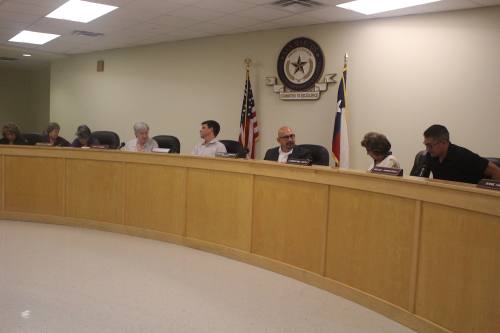San Marcos CISD teachers in charge of the district’s Crossroads transition program proposed facility upgrades to school board members at their Sept. 16 meeting.
The program is designed to help special education students transition into their adult lives after high school.
Paul Koonz, one of the teachers, spoke to the SMCISD school board about two items he said could provide educators more ways to help students: a doorway to connect the program’s existing two classrooms, and an expansion of the facility’s current kitchen and sink area.
While the doorway would add connectivity between the classrooms, Koonz said, a better kitchen would allow teachers to educate students on how to prepare meals by themselves.
“Right now it’s sort of like a classroom with a small sink,” Koonz said. “We’d like to expand that so that it’s ready for use by students.”
Crossroads operates out of the Lamar Personalized Learning Center, located 121 E. De Zavala Drive.
Tammy Maiorano, director of special education at SMCISD, said the transition program helps students learn professional skills—such as preparing for job interviews—as well as life skills that allow them to be independent.
“It’s really important to note that Crossroads isn’t a place; it’s not just a location. It’s a service and a community program,” Maiorano told school board members.
In addition to teachers who contribute daily to working with students and their families to help them function as independent adults, Koonz said the program has “job coaches” that help with employment opportunities and partners.
“These are the people that are out hitting the streets everyday, working with our students, taking them to places out in the community, helping our students learn the skills they need in order to be successful,” Koonz said.
The real strength of the program, Koonz said, is the flexibility that allows teachers to shape lessons to fit their students’ needs.
For example, Koonz said, several years ago one of the students ran into difficulties traveling around town safely with his bicycle.
After hearing of the student’s troubles, Koonz said teachers were able to find training material online and rode around town with the student to teach them proper bicycle protocol and practices.
“It is community-based; it’s diverse; we serve a wide variety of students with a lot of diverse needs and strengths,” Koonz said.
School board members did not vote on the proposal at their Sept. 16 meeting, as it was a discussion item, but may consider it at future meetings.




